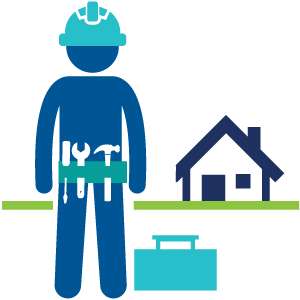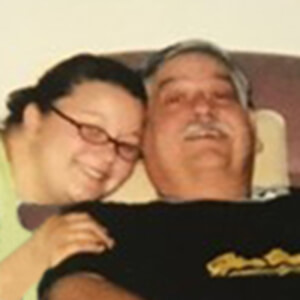Working Hard & Training Smart: A Home Hemodialysis Story

In-Center Hemodialysis: Starting out Strong
Like many people with kidney failure, Mark started with in-center hemodialysis (HD). He says he felt better almost immediately.
“I had heard about people on dialysis being worn out,” Mark recalls. “But my energy came back. It was a blessing for me.”
Although in-center dialysis went well, scheduling his days around treatments wasn’t a perfect fit. When Mark heard about home dialysis, he thought it sounded like a good option for him.
“I can work around things like a dialysis treatment schedule and still get my work done, but I’m also impatient,” says Mark. “I don’t like to sit and wait if I can get it done and keep moving. I feel better when I’m in control of my time.”
The Transitional Care Unit: Learning the Ropes
Mark asked his care team about switching to home hemodialysis (HHD), and learned about a section of his dialysis center (Fresenius Kidney Care in Ashtabula, Ohio) called the Transitional Care Unit (TCU). TCUs are small areas of a dialysis center (usually 4 to 8 stations) where people new to dialysis can learn about home therapies—more frequent HHD and peritoneal dialysis (PD). If prescribed by their kidney doctor, participants like Mark can try more frequent hemodialysis (the same treatment used by people on HHD) for themselves, with guidance and support from their care team.
“The TCU introduced me to HHD, so when I started home dialysis training, I already knew a lot about the therapy and the machine because of that experience,” Mark explains. “It’s like when you come across a project you’ve never done before, you spend time second-guessing yourself. You might get it done, but it takes longer because you have all these questions. The TCU helped break the ice. HHD was foreign to me up to that point.”
After completing the program, participants understand their treatment options better, are more prepared for training, and are empowered to make a choice that fits their lifestyle and medical needs.
Home therapies nurse Molly Balogh, RN, trained Mark on HHD once he finished the TCU program. She remembers Mark feeling comfortable and energized to learn how to do dialysis at home, and believes the TCU helped him prepare.
“For people who haven’t seen or dialyzed on the HHD machines, that first day of training can be overwhelming because they don’t know what to expect,” she says. “The TCU gives them experience with HHD and shows them they’ll feel better, which ultimately leads to a better lifestyle.”
While training Mark, Molly remembers being inspired by his dedication and willingness to learn.
“It was very important for him to feel well enough to keep working and have the scheduling freedom to keep up with his jobs,” Molly recalled. “It was inspiring to see someone who has gone through so much with his health be so motivated to learn new things, continue working, and take care of his family.”
Home Hemodialysis: Finding His Therapy Sweet Spot
It’s been about 2 years since Mark started HHD and he’s been able to continue doing what’s important to him. He’s spending time with his grandson, teaching his kids to cook (he’s a former sous chef), fishing for walleye, working hard, and attending church—which is where he and Felita first met.
“We’ve been married 29 years, by the grace of God,” says Mark. “She’s the best thing that ever happened to me.”
Mark says Felita is a tremendous source of support, and although he does his therapy himself, she is right by his side almost every night when it’s time for his treatment. He is grateful for the benefits he is experiencing on HHD, and grateful to be living life on his own terms.
“Home dialysis is something that can keep you healthy and there’s not a lot of running around,” he explains. “You’re in control of your time. When it’s winter and there’s 10 inches of snow on the roads, you don’t have to drive anywhere. You can just go in your little room, watch your TV, and enjoy the company of your own family while going through a dialysis treatment.”
Mark likes to educate others about HHD, and says people are often surprised to learn he does therapy independently. He also says there’s a sense of pride that comes from taking care of himself.
“People are amazed that a person living with kidney disease can do home dialysis,” Mark says. “In the minds of everyone else, it can sound so difficult. And when you can do that thing that seemed so hard, it makes you want to stick your chest out and say, ‘Man, I did it.’”
Suggested topics

Pursuing Passions While on Home Hemodialysis
Natalie Gwin Jones loves to craft. She spends her free time sewing, making jewelry, and selling her crafts on line. With home dialysis...
Choosing a Dialysis Treatment Option
When your kidneys fail, your body needs a new way to continue filtering your blood and taking care of other kidney-related functions. This is typically accomplished in one of two ways...

